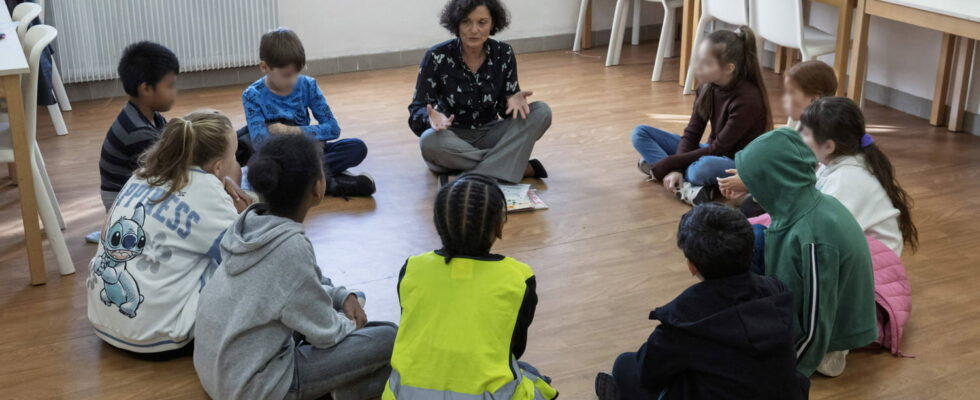While the sex education program at school has been revised and must be officially presented in December, criticism is already coming in, with certain associations expressing outrage at this teaching.
A new program “education for emotional, relational life and sexuality” will be presented on December 5 to the Higher Council of Education, for possible implementation at the start of the 2025 school year. With this revision, Education National hopes to expand the number of students who benefit from this teaching, three sessions of which are compulsory per year. According to RMChowever, only 15% of French students have access to it to date.
This teaching addresses important subjects such as consent or the prevention of violence and sexually transmitted diseases. In its new version, it could target work on emotions and the names of private parts from the early kindergarten section, then up to high school with, for older adolescents, questioning the differences between “excitement, feeling, desire and pleasure”.
This teaching is debated and stirs up certain fears within the most conservative associations. As the presentation of the new program approaches, the Family Union, Sos-Education and Vigilant Parents are stepping up to the plate. Ludovine de La Rochère, the very traditionalist and activist president of the Family Union, deplores “gender ideology” and “woke influence” which she considers very present in the current version of these sessions, reports The World.
For his part, the media Maurice Berger, a child psychiatrist who published a book on sex education at school with the director of Sos-Education – a very conservative right-wing association of Catholic inspiration – considers that this teaching is not ‘is not suitable for children, as stated on Europe 1without contradictory words. “We have to wait until a child asks questions to answer them,” he said. For the latter, it is, for example, problematic that the difference between heteroparental and homoparental families is mentioned before the age of 4. He fears that many slip-ups took place during these courses, in particular with the mention of subjects like “sodomy” or “fellatio”. Some parents are also very suspicious because many see “their children as asexual angels”, explained psychiatrist Serge Hefez to RMCto try to understand these fears.
Classes adapted to the age of the children
What is really taught in these courses? Maryse Boyer, founder of the iKi iKi association which provides sex education sessions at school, assured Huffpost that the lessons are completely adapted to the age of the children. “One of the most persistent rumors is that children are taught to masturbate. This is obviously absolutely false: at no time is this subject discussed with children, whether they are in elementary or middle school,” she said.
She explains that notions around the body, intimacy and sexuality are gradually deepened as children and adolescents grow. The subjects around violence, equality between girls and boys, harassment and discrimination are more explored from the end of primary school, for example. And tactfully. No actual sexuality education before middle school. The draft program indicates that sexuality “requires a degree of maturity and responsibility for which students must be prepared, very gradually and while respecting their pace of development.”
“Among the youngest, in kindergarten, we first evoke emotions and we learn to name the parts of the body”, indicates to Huffpost Maryse Boyer who further specifies: with 3-6 year olds, we explain with words adapted what love, friendship, family is, we answer their little children’s questions. We approach the notion of secret: knowing what it is, and making children understand that there are good secrets and that there are others that are bad. This makes it possible to address consent in very practical situations. For example, do you have to kiss a family member? Do I have the right to force a hug on a boyfriend or girlfriend?”
THE national unitary union of teachers also supports the progress of the program, affirming that students are not exposed to unsuitable content. On the contrary, according to the union, the objective is to “deconstruct these impacts and offer other less standardized, more egalitarian and non-violent representations of sexuality”, than what can be seen in pornography today, easily accessible online, and which creates trauma for the youngest.
While the program is also criticized for an explanation of gender considered premature, the SNUipp specifies that it is above all a question of going against girl-boy stereotypes and reducing inequalities. “The “gender theory” is a scarecrow regularly shaken by transphobic, sexist and far-right movements. At school, there is no question of blurring the identities of children, nor obviously of encouraging them to change their sex.”, recalls the union which gives concrete examples: “This involves, for example, not reserving certain games for girls, not prohibiting boys from expressing their feelings or thinking about the occupation of the playground”.
